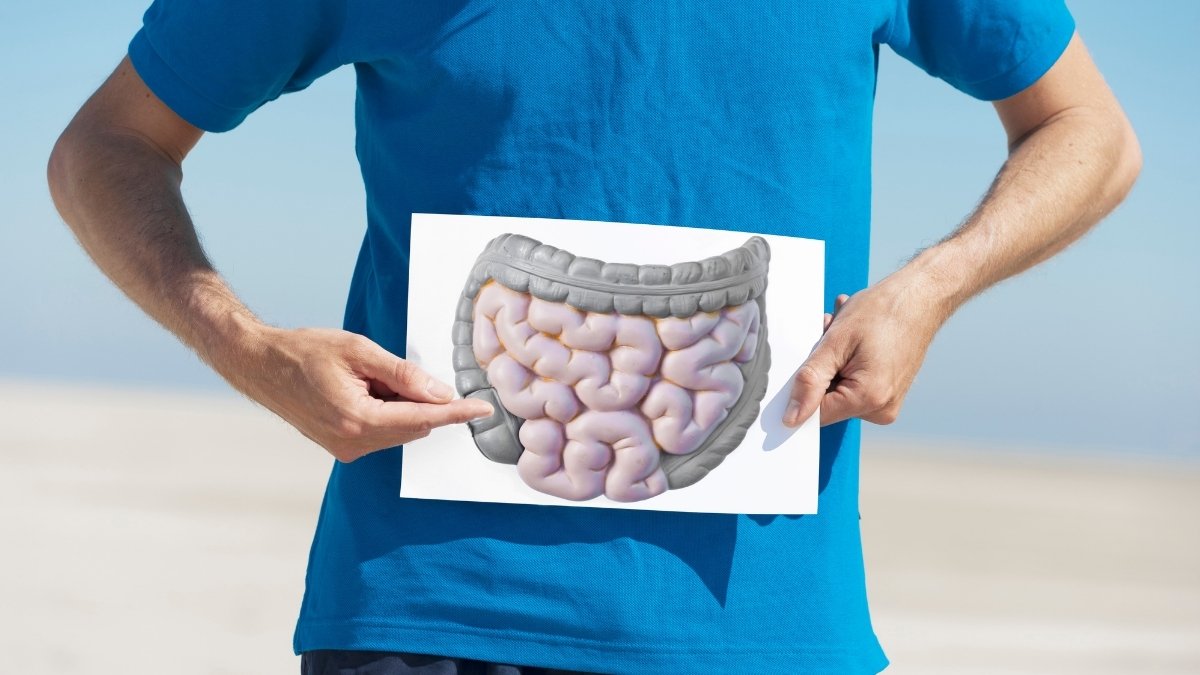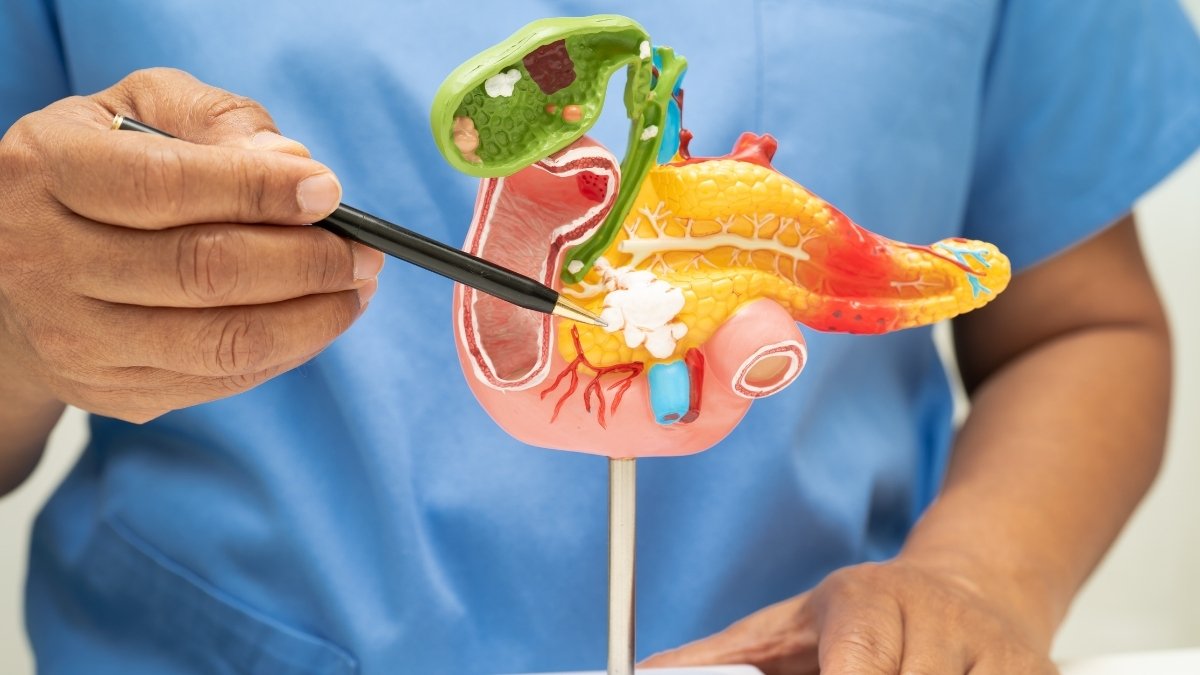The Gut-Health Reset: How Seniors Can Beat Bloating and Improve Digestion for Good

If you’ve noticed that your favorite foods now leave you feeling bloated, gassy, or uncomfortable—you’re not alone. Gut health for seniors often changes with age, and what used to be easy to digest can suddenly feel like a battle.
As we get older, digestive problems in older adults become more common. Stomach acid levels drop, the metabolism slows down, and many medications can upset your gut balance. On top of that, the good bacteria in your intestines—your microbiome—start to decline. The result? Bloating, constipation, and discomfort that can make you hesitant to eat the foods you love.

The good news is that this isn’t permanent. You can improve digestion naturally by rebuilding your gut health step-by-step. In this guide, you’ll learn why digestion changes after 60, the real causes of senior bloating, and how to fix them with a simple 5-point reset plan.
You’ll also discover foods that help instead of harm, and daily habits that keep your digestion running smoothly. This is about restoring comfort, confidence, and energy—so you can feel good from the inside out.
Why Gut Health for Seniors Becomes Problematic After 60
Your digestive system doesn’t work like it did at 40. And it’s not your fault.
After 60, your stomach makes 30% less acid than it used to. Think of it like a car engine losing horsepower. You’re still running, but you can’t break down food as well. This means proteins sit in your stomach longer. Nutrients don’t get absorbed. You feel bloated after meals that never bothered you before.

Your gut also slows down. Food moves through your intestines like traffic in rush hour instead of an open highway. This slower movement causes gas to build up. The longer food sits, the more bacteria ferment it, creating that uncomfortable bloating.
Here’s something most people don’t know: the good bacteria in your gut drops by nearly half as you age. The Baltimore Longitudinal Study of Aging found that seniors lose crucial digestive bacteria every year. Less good bacteria means more digestive problems. Your gut can’t handle foods it used to love.
Then there are medications. Research shows 40% of seniors take five or more daily medications. Many of these mess with your digestion. Antacids reduce stomach acid even more. Pain relievers damage your gut lining. Antibiotics wipe out good bacteria along with the bad.

Less movement means slower digestion. When you’re not as active, your intestines slow down too. Food sits longer. Bloating gets worse. Even a small drop in daily walking affects how well your gut works.
These changes explain the digestive problems in older adults. Your aging digestive system needs different support now. The good news? You can fix most of these issues with the right approach. Small changes make a big difference in gut health for seniors.
The 5-Point Gut Health Reset Plan for Lasting Bloating Relief
If bloating, slow digestion, or discomfort have become part of your routine, it’s time to reset your gut—naturally. This 5-point plan gives you simple, proven strategies that actually work for seniors.
1. Rebuild Your Microbiome Foundation
Start with probiotic-rich foods like yogurt, kefir, and sauerkraut. If using supplements, look for Lactobacillus rhamnosus and Bifidobacterium longum, proven to aid digestion in older adults.

Aim for at least 10 billion CFUs daily. Feed these good bacteria with prebiotics—fiber-rich foods like garlic, oats, and bananas.
Why it works: A balanced microbiome reduces bloating and improves nutrient absorption.
2. Support Your Digestive Enzymes
Natural enzyme sources include papaya, pineapple, and fermented foods. If meals leave you heavy or bloated, try an enzyme supplement before eating—especially one with amylase, lipase, and protease.

Why it works: Enzymes help your gut break down food efficiently, preventing gas buildup.
3. Adjust Your Eating Patterns
Eat smaller meals more often, stop at 80% fullness, and avoid late-night eating. This keeps digestion smooth and reduces pressure on your gut.

Why it works: Your digestive system slows with age, so pacing your meals prevents bloating and reflux.
4. Hydration Strategy for Seniors
Sip water between meals, not during. Aim for 6–8 cups daily, and try herbal teas like ginger, peppermint, or fennel to ease bloating naturally.

Why it works: Proper hydration supports enzyme activity and bowel regularity—both essential for digestion.
5. Movement That Moves Your Gut
A 10-minute walk after meals can reduce bloating by up to 42%. Add gentle yoga poses like wind-relieving pose or try light abdominal massage to stimulate movement.

Why it works: Motion helps your intestines process food and gas faster.
Foods That Heal Your Gut (And What to Avoid When You’re Over 60)
What you eat after 60 can make or break your digestion. The goal isn’t to restrict—it’s to nourish your gut with foods that heal while easing the load on your system.
Eat More: Fermented foods like yogurt, kefir, or sauerkraut (just 2 tablespoons daily can reduce bloating by 33%). Choose cooked veggies over raw, bone broth for gut repair, and soft proteins like fish, eggs, or tofu that digest easily. Stick to low-FODMAP fruits—berries, oranges, and kiwis.

Eat Less: Skip common triggers like onions, beans, and fried foods. Avoid sugar alcohols in “sugar-free” snacks and carbonated drinks that trap gas. Artificial sweeteners? They disrupt your microbiome.
Swap this for that: Choose warm broth instead of soda. Steamed veggies instead of salads.
That’s how you improve digestion naturally and ease digestive problems in older adults while keeping food enjoyable.
Warning Signs You Need Professional Help (When Self-Care Isn’t Enough)
Sometimes, bloating or discomfort isn’t just about food—it’s your body asking for help. See a doctor if you have blood in your stool, unexplained weight loss, severe or constant pain, vomiting, black stools, sudden appetite changes, or persistent diarrhea or constipation lasting more than two weeks.

These could signal IBD, celiac disease, or even cancer, which become more common with age. Ask your provider about SIBO breath tests, comprehensive stool analysis, and screenings for seniors.
Trust your gut—literally. If something feels wrong, speak up. A gastroenterologist or functional medicine specialist can uncover root causes and create a plan that supports long-term gut health for seniors and addresses serious digestive problems in older adults early
Conclusion:
Digestive problems in older adults don’t have to be your new normal. With the right habits, you can improve digestion naturally and feel lighter, stronger, and more energetic every day.
The key? Support your microbiome with good bacteria, boost enzymes that help you break down food, and adjust your eating patterns to fit your body’s changing needs. Add gentle movement—like post-meal walks—to keep things flowing.

It doesn’t take a full lifestyle overhaul to feel better. Start with just one change today—whether it’s a 10-minute walk after dinner or adding a serving of fermented vegetables. Your gut will thank you, and you’ll soon notice the difference in how you feel.
Better digestion means better living. With a few consistent habits, you can build lasting gut health for seniors and enjoy the freedom of a comfortable, balanced body at any age.






